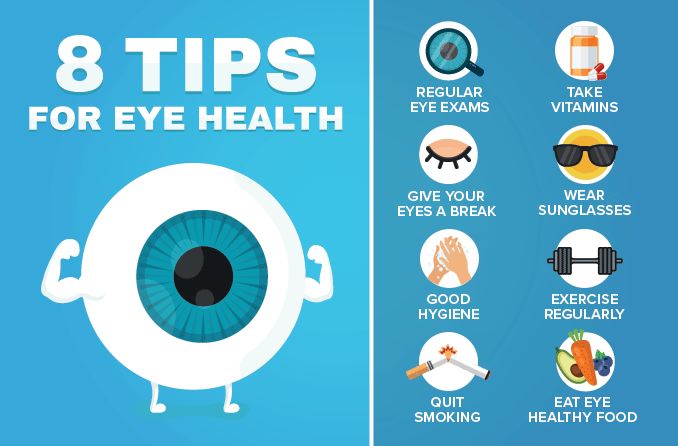Is Refractive Surgery Right for You? Elements to Think About for Better Eyecare
In the world of eye treatment, the decision to undertake refractive surgical treatment is a significant one that requires thoughtful consideration. From the intricacies of one's eye health to the complexities of day-to-day behaviors and individual expectations, each element holds value in the more comprehensive landscape of refractive surgical procedure candidacy.
Eye Wellness Evaluation
When taking into consideration refractive surgical procedure, an extensive eye health analysis is critical to evaluate the viability of the treatment for each person. neurologist andalusia. This evaluation involves a series of exams and examinations conducted by an eye treatment expert to determine the general health of the eyes, the presence of any underlying conditions, and the stability of the refractive mistake
During the evaluation, different aspects are taken into consideration, such as the client's medical history, current eye prescription, corneal thickness, student dimension, and tear movie high quality. These assessments assist to determine any type of contraindications to refractive surgical procedure, such as corneal abnormalities, cataracts, or without treatment eye infections. Furthermore, the analysis assists to handle individual expectations relating to the possible end results of the surgical procedure based upon their unique eye qualities.
Ultimately, the eye wellness examination is necessary in ensuring the safety and effectiveness of refractive surgery, as it provides useful understandings right into the person's eye health and wellness condition and aids figure out the most ideal treatment options for achieving ideal visual outcomes. (neurologist andalusia)
Way Of Living Evaluation
An extensive way of life assessment is integral in figuring out the viability of refractive surgical treatment for an individual's visual adjustment demands. Way of life aspects such as occupation, leisure activities, and day-to-day tasks play a vital role in the decision-making process regarding refractive surgical treatment. For example, people with careers that include a high degree of exercise or exposure to ecological elements may have various visual requirements compared to those with less active desk tasks. Understanding just how an individual's way of life may impact their vision post-surgery is essential for handling assumptions and making sure ideal end results.
Additionally, way of life routines such as sports involvement, outdoor activities, or also skincare regimens can influence the recovery procedure and overall success of refractive surgery. By carrying out a thorough way of life evaluation, eye care professionals can customize their recommendations and treatment strategies to satisfy the one-of-a-kind demands of each person, ultimately leading to improved visual end results and contentment.
Expectation Positioning

Setting realistic assumptions includes thorough pre-operative discussions between the individual and the eye doctor. The surgeon ought to transparently interact the possible threats, advantages, and limitations of the treatment (eye center andalusia). Clients need to comprehend that while several people attain 20/20 vision or much better adhering to refractive surgical procedure, some might still require glasses for specific activities like analysis or driving at night. Managing these assumptions helps stop disappointment and dissatisfaction post-surgery, leading to a more favorable general experience for the person.
Danger Evaluation

Factors that might boost the threat of complications look at this now consist of age, specific clinical conditions like autoimmune illness, unstable vision prescription, slim corneas, and impractical client expectations. In addition, selecting a skilled and experienced surgeon, following pre and post-operative treatment directions diligently, and disclosing any kind of pertinent case history can aid minimize dangers.
To reduce the likelihood of problems, ophthalmologists conduct detailed pre-operative evaluations to recognize any contraindications to surgery. They also discuss the possible dangers and benefits with people during the consultation process. By taking part in open interaction and shared decision-making, both the eye doctor and the person can function with each other to identify if refractive surgical treatment is the best selection based on individual threat profiles and preferred results.
Appointment Significance
Thinking about the crucial role of informed decision-making in assessing threats and possible issues in refractive surgical see page treatment, the examination process holds considerable importance in guiding individuals in the direction of ideal results. During the assessment, the eye doctor examines the client's eye health and wellness, refractive errors, and overall suitability for surgery. This initial analysis is essential in determining one of the most appropriate treatment for each and every person, thinking about factors such as corneal density, student dimension, and existing eye problems.
Moreover, the consultation works as a possibility for clients to review their expectations, problems, and any concerns they may have concerning the surgery. Clear communication between the person and the doctor is vital to ensure practical assumptions and an extensive understanding of the potential dangers and advantages involved.
Furthermore, the examination permits the specialist to discuss the different surgical choices available, their particular end results, and the post-operative care called for. This extensive conversation empowers clients to make well-informed choices concerning their eye treatment, leading to far better fulfillment and results post-surgery.
Conclusion
Finally, individuals considering refractive surgery ought to undergo a comprehensive eye wellness evaluation, examine their way of living behaviors, straighten their assumptions with possible outcomes, assess the affiliated risks, and focus on appointments with eye treatment specialists. These variables play an essential role in establishing the viability of refractive surgical treatment for each and every person, ensuring optimal results and complete satisfaction with the procedure.
Individuals thinking about refractive surgical treatment typically have high assumptions pertaining to the end results, anticipating perfect vision without the requirement for glasses or contact lenses. While refractive surgical procedure can significantly improve vision and reduce dependency on aesthetic aids, it is crucial for patients to understand that results may differ based on specific factors such as the level of refractive mistake, corneal thickness, and overall eye health.
By involving in open communication and shared decision-making, both the ophthalmologist and the client can function together to determine if refractive surgical procedure is the best option based on specific threat accounts and preferred end results.
Considering the important role of educated decision-making in analyzing risks and prospective issues in refractive surgery, the examination procedure holds significant significance in assisting individuals towards optimal results. During the assessment, the eye doctor examines the client's eye health and wellness, refractive mistakes, and total suitability for surgery.